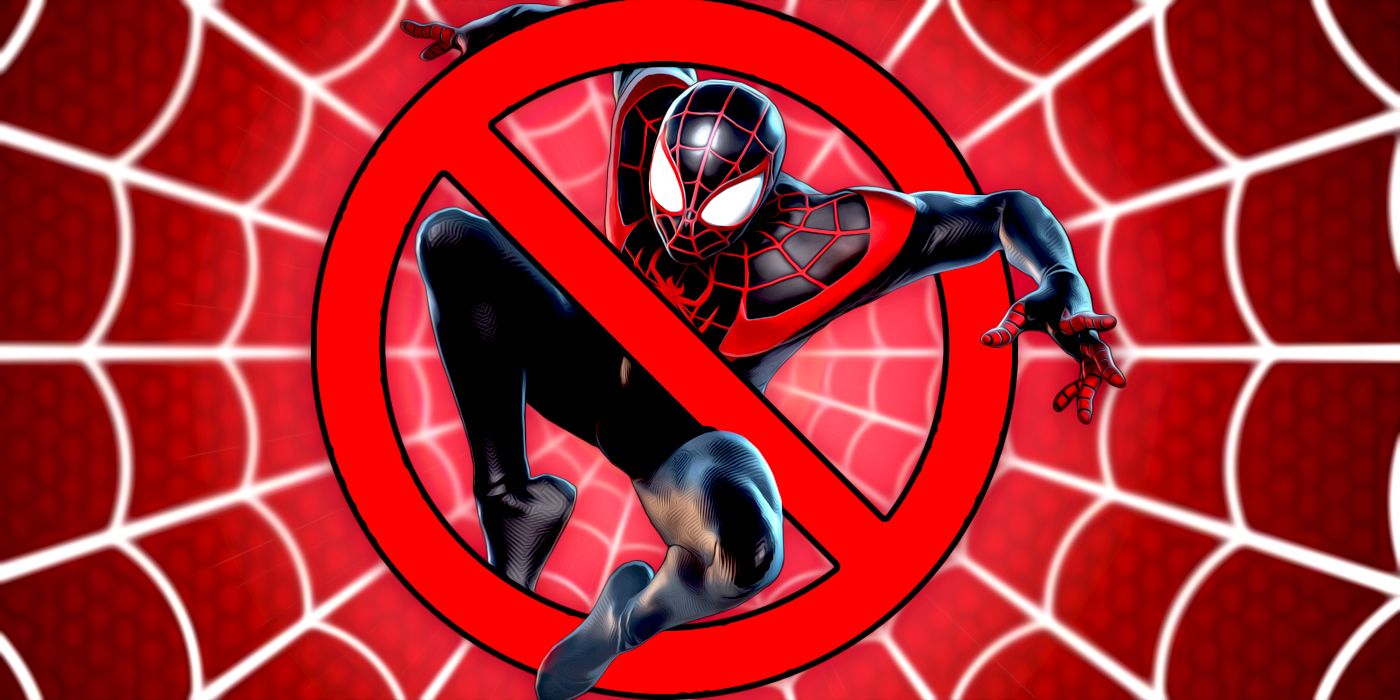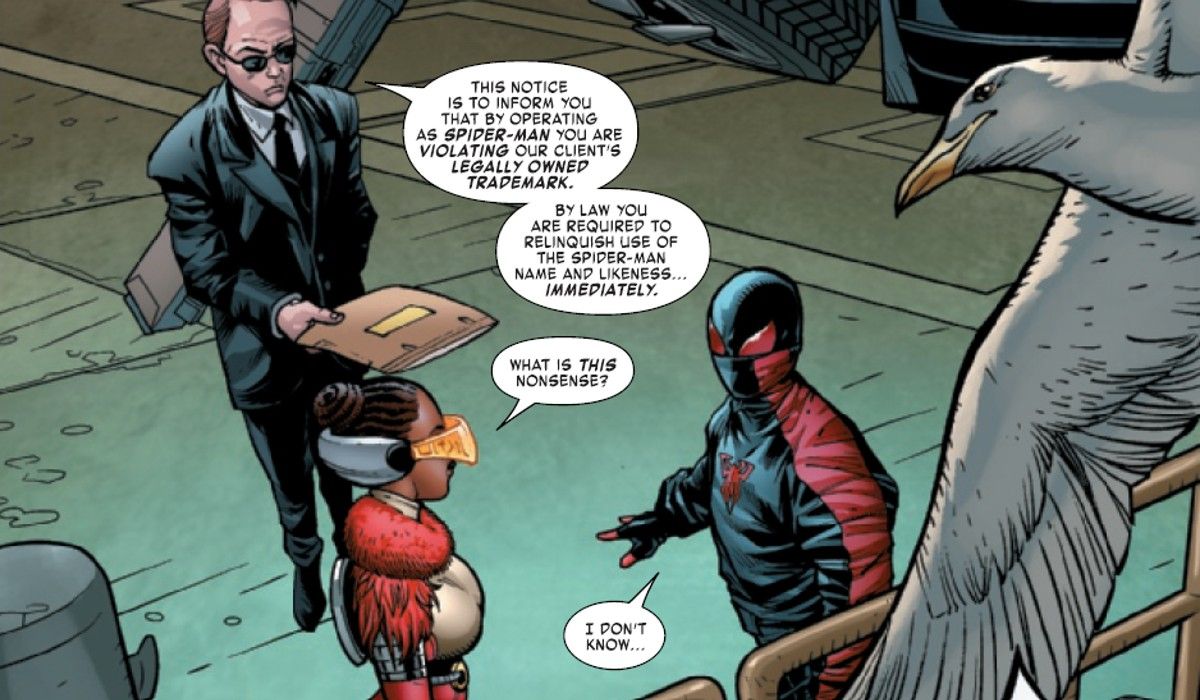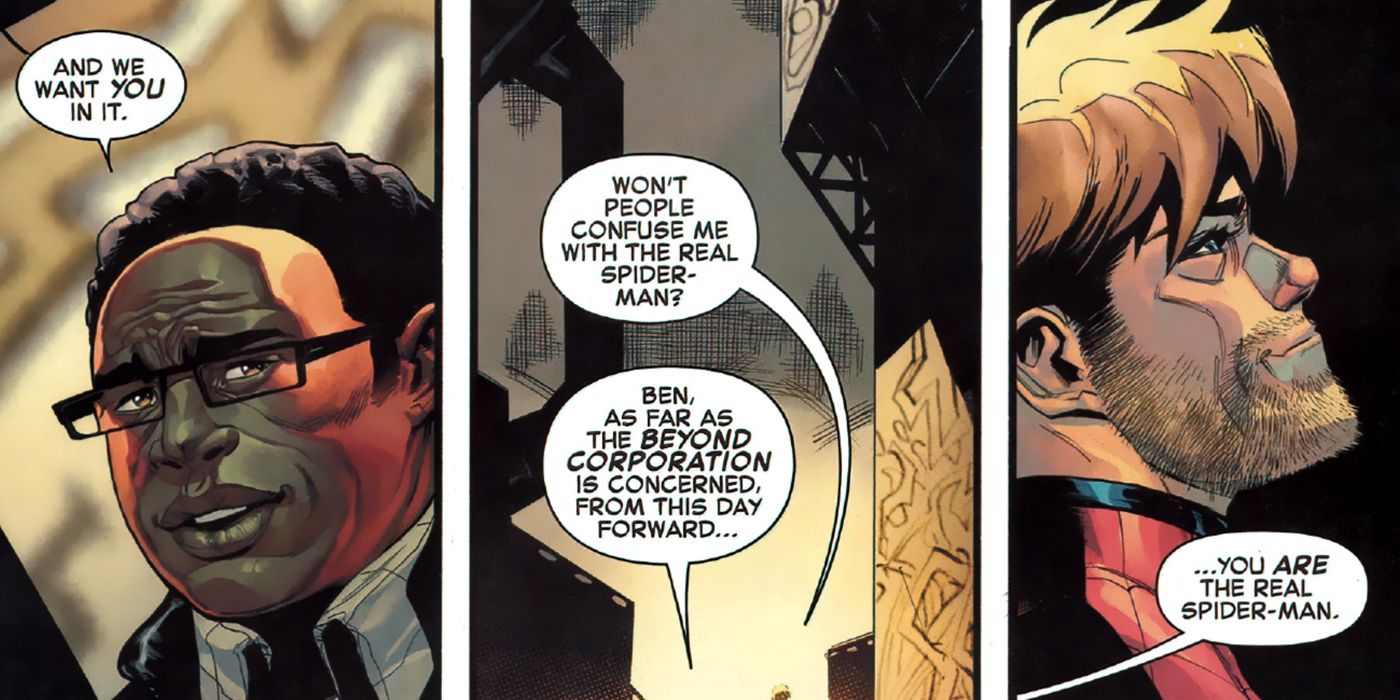Ever since he stepped into the Marvel Universe, Miles Morales has won over fans as one of the greatest heroes to wear the mantle of Spider-Man. Despite his young age, and the complicated relationships that come with his alias, Miles hasn't let anything prevent him from carrying on what might be Marvel's most iconic legacy. Unfortunately, Miles Morales: Spider-Man #32 (by Saladin Ahmed, Christopher Allen, Guru-eFX, and VC's Cory Petit) worried readers that the young web-slinger's time using the heroic identity would come to an end, due to the efforts of the Beyond Corporation.
After Miles and his girlfriend Tiana Toomes, aka Starling, finish fighting the Taskmaster in their superhero identities, they are greeted by a flying limo bearing mysterious men in suits. Miles is then served with a cease-and-desist order by the Beyond Corporation, which owns the rights to the name and likeness of "Spider-Man."
Miles Morales' Legal Drama Reflects the Real-Life Marvel/Sony Battle
In some ways, the legal dilemma Miles faces in the comic book world is reflective of the real-life battle that was waged by Marvel and Sony for years over the use of Spider-Man. It may not be a direct reference, of course, but the Spider-Man brand being so hotly contested is absolutely something that Marvel has had to contend with, and Miles must do so now. As a theme, corporate sponsorship of comic book properties has been addressed in some other strange places. Take Captain Amazing, for example, who was featured in the 1999 film Mystery Men.
Although the film was only loosely based on Bob Burden's Flaming Carrot Comics, it embodied the satire of the source material. That includes Captain Amazing having dozens of corporate sponsors, whose patches adorn his costume.Amazing was fine to sell out (and in a way, take control of) his brand, though we don't expect "Spidey Beyond" to undertake the same business relationships.
Given the most recent success of Spider-Man: Across the Spider-Verse, the real-life copyright battle between Marvel and Sony doesn't have a grave effect on the any other versions of Miles Morales. In fact, the introduction of Miles as Spider-Man has only encouraged more adaptations of the character in other mediums, such as Marvel's Spider-Man: Miles Morales and Spider-Man 2 on Playstation. While Marvel and Disney use Peter Parker as the main Spider-Man in their universe, Sony relies on Miles Morales (plus other versions of Spider-Man). And it's only been a success for Sony, with Across the Spider-Verse being one of the highest-grossing films of 2023.
Corporate Superhero Sponsorship Creates Problems for Comic Miles Morales
Although selling out may be difficult to imagine any respectable superhero taking that route, some have come remarkably close. Another example from the comics is 1993's "Reign of the Supermen" event, which occurred after DC's famed "Death of Superman," and introduced Kon-El, a potential replacement for the Man of Steel. Like the Beyond Corporation, his sponsor secured the exclusive rights to everything pertaining to the "Superman" brand, and relinquished its hold only upon the return of the original.
The argument can reasonably be made that all of these occurrences are an allusion to how superheroes have become corporate entities over the past few decades, thanks to the boom of movie and TV adaptations, and the complex rights disputes that came as a result. The interaction between Miles and the representatives of the Beyond Corporation is a good place to start when it comes to the discussion of who exactly owns these characters and how to handle them. In the comic book world, the answer to this question will undoubtedly hold serious ramifications for the young Spider-Man.



